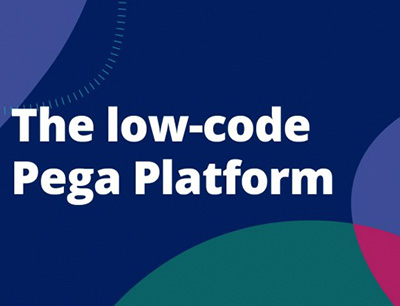Introduction
The digital world is changing fast, and organisations are continuously looking for business process efficiency i.e. optimising to minimise time and effort, so reducing waste. At the same time, making those processes easier for customers to navigate.
To help with this goal, low-code and no-code workflow automation platforms have become more prevalent. Finding one that strikes the right balance between ease-of-use and the ability to handle complex use cases can be difficult.
Low-Code vs No-Code Platforms
Low-code platforms are designed to streamline application development by offering pre-built components that can be customised with minimal coding. This approach enables developers to create applications more quickly while still providing a high level of control and flexibility. No-code platforms on the other hand, aim to eliminate the need for coding altogether.
Pega: A Hybrid Approach to Application Development
Pega combines elements of both low-code and no-code platforms, offering a comprehensive solution that’s perfect for building enterprise applications. With its visual interface and pre-built components, Pega enables no-code rapid development while also offering the ability to go low-code to handle more complex requirements.
1. Rich Functionality and Customisation
Pega App Studio offers a wealth of pre-built components, templates, and UI elements that simplifies building apps. Its visual interface allows drag-and-drop of these components into applications, reducing time spent on coding, same time allowing developers to dive into more advanced features when needed.
This flexibility allows teams to create applications tailored to their specific requirements and handle complex use cases without compromising on ease of use. Additionally, Pega’s adaptive and reusable case and data management features allows for efficient handling of diverse processes and data types.
2. User-Friendly for All Skill Levels
Pega App Studio is designed to accommodate different skill levels, from as-need/citizen developers to seasoned pros. The easy-to-use visual interface and drag-and-drop features mean that both developers and non-developers can work together on app development, bringing IT and business teams closer together.
3. Faster Development and Better Agility
Pega App Studio’s pre-built components, visual interface, and reusable assets helps create and launch apps faster. This accelerated development process allows enterprises to respond more effectively to market changes and customer demands.
Furthermore, Pega’s agile development approach, Pega Express, supports iterative improvements, encouraging quick release and refinement of applications based on user feedback and evolving requirements. This agility delivers actual usable solutions, not compromises.
4. Easy Integration and Compatibility
Pega integrates seamlessly with a wide range of systems, APIs, and services, ensuring compatibility with existing infrastructure. This flexibility allows organizations to create solutions that streamline operations and eliminate the dreaded swivel-chair syndrome i.e. manually switching between multiple applications to complete a task.
5. Scalability and Performance
Pega is built for enterprise-level performance and scalability, making it suitable for large-scale or high-traffic applications. Using Pega Cloud’s robust architecture ensures applications grow with the organisation, delivering consistent performance even under heavy workloads.
6. A Solid Plan for Managing Bugs
Even with no-code platforms, bugs still occur due to issues such as incorrect data inputs, incorrect configurations and design flaws. While Pega’s platform simplifies development, it doesn’t eliminate issues altogether. However, Pega’s approach effectively manages the Test-Triage-Fix cycle, in line with shift-left best practices to Testing. How ? By using guardrails, automated testing, debugging tools, application monitoring, DevOps and agile development philosophy. This approach helps teams proactively identify and resolve bugs, better ensuring reliable applications adopted by the business.
Conclusion
For organisations looking for a solution that combines the simplicity of no-code platforms with the power of low-code platforms, Pega’s hybrid approach to app development has it covered. In Pega App Studio, the platform offers a rich set of pre-built components, easy integration options and robust scalability, allowing for both simple and enterprise use cases while optimising app development.
-by Arun Malhotra, Head of Client Services






